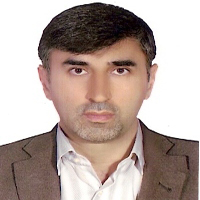Evaluation and comparison of geostatistical and fuzzy interpolation methods in estimation of groundwater arsenic, Case study: Khoy plain aquifer
Author(s):
Abstract:
Accurate analysis and interpolation of heavy metals, especially arsenic concentrationin ground watercan play a significant role in planning and continuous monitoring of water resources. The analysis may also prevent human health issues.The purpose of this paper was to evaluate newly published Sugeno type fuzzy inference system as an interpolation method for estimating the amount of arsenic in Khoy Aquifer. It is done by assessinginverse distance weighting (IDW), Kriging (simple, ordinary and universal), Cokriging and Sugeno type fuzzy inference system. The results after optimization of the influencing factors in the interpolation methods indicated that RMSE, due to the low density and odd arrangement of wells, for all of the interpolation methods is high. Among the methods that did not use the auxiliary data, soft computing and IDW, with 53ppb and 56ppb RMSE respectively, lays better estimation than Kriging methods.Chlorine (Cl), Sodium (Na) and Iron (Fe) were used as auxiliary data. These data improved the accuracy of kriging and fuzzy methods by 46% and 51% than single univariate methods. The main cause of 19% improvement of the fuzzy method is attributed to its independence of normal distribution. The results showed that fuzzy Sugeno in the modeling of interpolation is more flexible and easier to execute (in terms of both users knowledge and in software development).
Keywords:
Language:
Persian
Published:
Iranian Journal of Eco Hydrology, Volume:2 Issue: 1, 2015
Page:
63
https://www.magiran.com/p1603127
سامانه نویسندگان
مقالات دیگری از این نویسنده (گان)
-
Development of an Ensemble Learning Approach for Soybean Yield Prediction using Satellite and Meteorological Data
Ali Sabzali Yameqani*, Aliasghar Alesheikh, Mostafa Majidi
Journal of Geomatics Science and Technology, -
Investigation of Spatio-Temporal Patterns of Suburban Traffic Accidents in Isfahan Province in GIS Environment
M. Rahmati, H. Aghamohammadi *, S. Behzadi, A.A. Alesheikh
Journal of Remote Sensing and Geoinformation Research,



